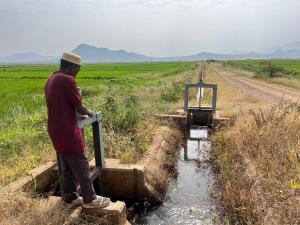Test project Heidi
In the spirit of life long learning
Testproject DM
Welcome to Daniel's testproject
Test project Pesticides and Protection Tanzania
testing out building a project
pece_annotation_1477239991
Sara.TillEmily Goldmann, PhD, MPH: assistant research professor of Global Public Health at NYU College of Global Public Health. Previous research includes work within several public health consulting firms and employment in the NYC Department of Health and Mental Hygiene in the Bureau of Adult Mental Health; this work included surveillance of psychological distress, metal illness, hospitalization, and rapid assessment of mental health conditions following hurricane Sandy.
Sandro Galea MD, MPH, DrPH: a Canadian/American board-certified emergency medicine physician and epidemiologist, Dr. Galea is the current dean of the BU School of Public Health and former chair of Epidemiology at Mailman School of Public Health (Columbia University). His research primarily centers on social production of health within urban populations, including mental health disorders such as mood-anxiety and substance abuse; extensive publications exploring health inequalities, epidemiology, and health within vulnerable populations. Dr. Galea has served on numerous boards and committees analyzing the consequences of mass traumas, including 9/11, Hurricane Katrina, and numerous international conflicts.
pece_annotation_1476046667
joerene.aviles1. “Chronic disaster syndrome” thus refers in this analysis to the cluster of trauma-and posttrauma-related phenomena that are at once individual, social, and political and that are associated with disaster as simultaneously causative and experiential of a chronic condition of distress in relation to displacement.
2. Most efforts to rebuild health care facilities focused on emergency care, routine care, and surgical services rather than psychiatry.
3. For many people, the idea that they had to stay in a state of heightened response to the pending “crisis”—a state they had already been in for over two years—produced huge anxiety and exhaustion.
4. Instead, the notion that New Orleanians themselves were a threat to public or national security circulated and became a rationale for the efforts the government did take to effect change in New Orleans. This change, in effect, targeted the poor. The poor, it seems, were to be evicted from New Orleans as a way to “clean up” the city and help it recover once and for all.
pece_annotation_1477273427
Sara.Till1) Attawapiskat: This First Nation region is described in the article as one of the most isolate and remote. Further research indicates not only is it geographically isolated, but it lacks significant resources, resulting in a high cost of living and a scarcity in certain goods. Moreover, the region is serviced by a nursing clinic (no physicians) and a team of 8 paramedics-- truly an under-served medical region.
2) Aboriginal Healing Foundation: Our Catholic high school curriculum involved an ethics class, which debated the mistreatment aboriginals in the name of evangelicalism. I chose to research the foundation and determine what made this special-- why were they able to be cited as making such progress, despite losing funding in a few years.
3) Sheridan: A young girl who came to symbolize the suicide epidemic in Attawapiskat, she was 1 of over 100 who attempted to commit suicide within the span of 7 months. The Vice article describing her life and circumstances shows hints of an adolescent wise beyond her years, quoted as saying "if there's no resources, there's not going to be any change" in her suicide recording.
pece_annotation_1478470147
joerene.aviles1. Arguably, the new Ukrainian accounting of the Cherobyl unknown was part and parcel of the government's strategies for "knowledge-based" governance and social mobilization. In 1991 and in its first set of laws, the new parliament denounced the Soviet management of Chemobyl as "an act of genocide."
2. On the one hand, the Ukrainian government rejected Western neoliberal prescriptions to downsize its social welfare domain; on the other hand, it presented itself as informed by the principles of a moder risk society. On the one hand, these Chernobyl laws allowed for unprecedented civic organizing; on the other hand, they became distinct venues of corruption through which informal practices of providing or selling access to state privileges and protections (blat) expanded.
3. Government-operated radiation research clinics and non- governmental organizations mediate an informal economy of illness and claims to a "biological citizenship"-a demand for, but limited access to, a form of social welfare based on medical, scientific, and legal criteria that recognize injury and compensate for it.
pece_annotation_1478927117
Sara.TillThe article focuses more on the fallacies of our current approaches to medicine. Dr. Kramer contends that the public would benefit from physicians melding their current factual approaches with anecdotal methods as well. Particularly, the field of psychiatry, which dabbles in processes of the brain not yet understood. While Dr. Kramer acknowledges it is necessary to have a well-defined approach, using "stories" allows for a more enriched judgement and remind practitioners of the vast differences in human experience.



the rice irrigation scheme, Pare Valley, Tanzania